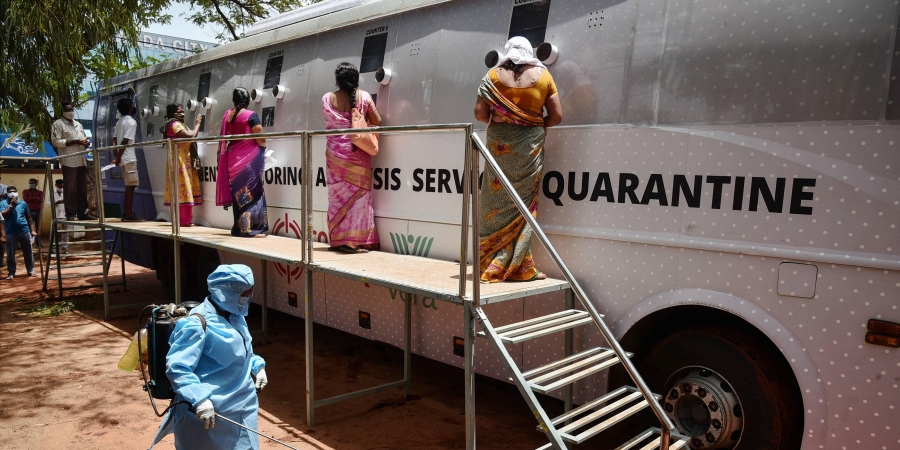
Physical distancing more helpful in curbing COVID than travel bans: Study
The COVID situation is slowly limping back to normal. Travel restrictions, face masks and many other measures could help contain the spread of the coronavirus.

The COVID situation is slowly limping back to normal. Travel restrictions, face masks and many other measures could help contain the spread of the coronavirus. Among them, which is more effective? Which of these advisories must the government enforce even after lifting the lockdown?
A new study suggests that physical distancing has a much stronger impact on controlling the novel coronavirus spread than travel bans. The mathematical modelling points out that while the travel ban may slow the peaking of the COVID infection by days, physical distancing, if practised widely, can slow the peaking even up to four weeks.
Forecasting the spreading of a pandemic is imperative to help the authorities choose right strategies in post-lockdown scenarios. Social and economic measures enforced must have significant impact towards curbing the pandemic and dealing with its aftermath, to justify the cost. The study examined in detail the impact of closing the borders between two regions of the globe versus different degrees of physical distancing.
The researchers led by Professor Francesco Sannino modelled various measures like travel ban, physical distancing and others to find out the most rewarding strategies. “We discovered that physical distancing measures are more effective than travel limitations across borders in delaying the epidemic peak,” says Professor Sannino, University of Southern Denmark and Danish Institute of Advanced Science. He added, “The results corroborate our finding that the travel across regions sparks the epidemic diffusion, which then develops in each region independently.”
Virus-induced pandemics like COVID-19 are a threat to humans not only because of the number of human lives taken but also because of the profound and long-lasting impact on the economy and social dynamics.
While different empirical models already exist to describe the epidemic dynamics locally and globally, a coherent framework was missing. Using a powerful language and methodology borrowed from high energy physics, Professor Sannino and his colleague Giacomo Cacciapaglia from University of Lyon, developed a framework based on renormalisation group approach, which can forecast the spreading dynamics and containment across different regions of the world.
“We plan on embarking on a world-wide monitoring to make global projections that will help governments and industries make containment plans and strategise about reopening society and how to best implement border control”, says Professor Sannino. The take home message is that social distancing plays the dominant role in curbing and delaying the epidemic spread.
(With inputs from India Science Wire)

